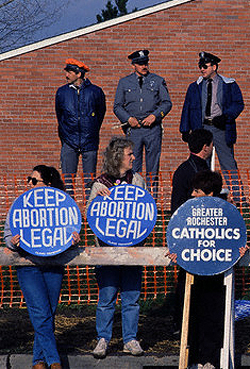Is it a sin to hate? Yes or no? Why or why not? If someone were to take a poll among our fellow Catholics, he would receive quite curious answers, revealing a general confusion of ideas and a fundamental lack of logic.
For many people still intoxicated with the remnants of 19th century Romanticism, hatred is not only a sin, but the sin par excellence. The romantic’s definition of a wicked man is one who carries hatred in his heart. A contrario sensu, for these persons virtue par excellence is goodness. For this reason, all sins are attenuated when committed by a person with a “good heart.”
One often hears statements like this: “Poor X, he unfortunately made the bad decision to go to Las Vegas to marry, but deep down he is a very good person. He has a ‘good heart.’” Or: “Poor Y, he let some persons in his company adjust the company accounts for their own profit, but he did so from an excess of goodness. He just cannot say no to anyone.”
What is a “good-hearted” person? First of all, it refers not to a heart properly speaking, but rather to a state of spirit. A person has a “good heart” if he vividly experiences in himself what the others suffer. Hence, he never wants to make anyone suffer.
Egalitarian tendencies of the “good heart”
It is because of a “good heart” that a man does not punish the bad actions of his children, or allows anarchy to reign in the class he teaches or the workplace he manages. A reprimand would make someone suffer, and the good-hearted man never wants to do this. He suffers too much from making others suffer. The “good hearted” man sacrifices everything to achieve this essential objective of preventing suffering.

The man of "good heart" does not combat the excesses of the youth so as not to make them suffer |
If he sees another person complaining about the rigor of the Commandments of the Decalogue, he immediately thinks about how to soften them or give them accommodating interpretations. If someone is in a crisis of envy, suffering because he is not noble or a millionaire, the “good-hearted” man begins to think about how to democratize society and the economy. If he is a judge, his “goodness” leads him to make sophisms regarding the law to let some crimes go unpunished.
If he is a police officer, he closes his eyes to some actions that his duty obliges him to reprimand. If he is a prison director, he treats the inmates as innocent victims of a corrupted society or difficult situations. Consequently, he will establish a penal regime that transforms the prison into a melting pot of all the vices by allowing the inmates to communicate freely. Thus, each will acquire all the moral vices he still does not have.
If he is a teacher, he carelessly gives good grades to students who deserve lower marks. If he is a legislator, he systematically works to reduce work hours and raise salaries. If he is an international politician, he favors every capitulation and improvident concession as long as its brings peace for a short period of time.
Underlying all these attitudes is the idea that there is only one evil in the world: physical and moral pain – and everything that produces them. Hence, what is good is everything that tends to prevent or eliminate these evils.
Hatred for the upright man
The man with a “good-heart” has a special type of sensibility that makes him emotional in face of any suffering. He defends any individual who suffers as if he were the victim of an unjust aggression.

Honors and awards should be abolished since they can make others suffer envy |
According to this conception of life, “to love one’s neighbor” is to desire he does not suffer. To make the neighbor suffer is to have hatred for him.
This develops a particular psychology in the “good-hearted” man. All those who have zeal for preserving order, hierarchy, integrity of principles and defending the good against the onslaught of evil – these are heartless persons, since their energetic application of principles makes all those “poor people” who “had the weakness” of falling into some error suffer.
And although the "good-hearted" man has tolerance for all the sinners on earth, it is coherent that he hates the “bad-hearted” man who “makes others suffer.”
These are the general lines that summarize this state of spirit. It is obvious that we are speaking theoretically. Thanks be to God, only a relatively small number of persons reaches the final extremes in all cases. But it is common to find people assume this attitude in various different points. There are veritable multitudes that have some portions of this state of spirit.
The Catholic doctrine of suffering
To show how profound this evil is, I will offer some common examples of how many Catholics speak and feel. First, however, I will present the Catholic doctrine on this topic to help the reader judge the error in these examples.
For the Church, the greatest evil in this world is not suffering but sin. The greatest good is not to have good health, a well-furnished table and tranquil sleep or to enjoy honors and free time, but rather it is to accomplish the will of God.

The Crusaders endured great dangers to save the Holy Land |
Suffering is certainly an evil. But this evil in many cases can be transformed into a good, offering the opportunity for expiation, formation and spiritual progress. The Church is a mother, the most tender, solicitous and affectionate of the mothers. One can say that she, like Our Lady, is the Mater Amabilis, Mater Admirabilis and Mater Misericordiae. Thus, she is constantly seeking every means to prevent her children and all men from suffering any useless pain.
Nonetheless, she will never stop imposing sufferings on them insofar as the glory of God and the salvation of souls demand these sufferings. She asked the martyrs of all centuries to endure the most atrocious torments. She called for the Crusaders to abandon the comforts of their homes to face fatigue, countless combats and even death in a foreign land. Still today she asks missionaries to face risks and endure hardships in the most hostile and faraway places. From all the faithful she asks the ceaseless interior battle against their passions and the constant effort to restrain from everything that is evil.
But since all these tasks suppose an amount of suffering that it is insupportable for our human weakness, the Church teaches us that the help of the grace is indispensable to face them or even to stably practice all of the Commandments. She teaches us how to ask for this supernatural help from Our Lord, Our Lady, the Angels and Saints.
Thus, the Church - who imposes without vacillation, remorse or weakness the sufferings necessary to accomplish our missions - is also the good mother who always acts with prudence and goodness, offering supernatural help to her children. The mother who would be hesitant, sorry or irresolute when obliging her son to study, to undergo a painful but necessary medical treatment or to endure needed punishments, would not be a good mother.
This is also the way the Church deals with suffering regarding each one of us: We must love mortification, we must courageously chastise our own body and meticulously, adroitly and constantly fight the defects of our souls. Consequently, since we must love our neighbors as ourselves, the Church teaches us to act the same way toward our neighbors. It is right to avoid useless and unnecessary pain. We should show mercy toward our neighbors, sympathizing with their sufferings and making every effort to alleviate them. However, we should not hesitate to make them suffer also when it is necessary for their sanctification.
The ‘good-hearted’ man is always tolerant of evil
When we apply these Catholic principles, it is easy to see the many defects caused by the romantic idea of
the “good-hearted.” I will give some more examples specifically on Catholic themes.

The pro-abortion Catholics cannot bear to see women deprived of choice |
The “good-hearted” man is complacent with divorce because he pities the spouses. He is favorable toward doing away with religious vows and clergy celibacy because of the sufferings these obligations impose on persons consecrated to God. He is quick to justify birth control with the excuse of pity for the suffering of the mother.
We find the same mentality in other fields: The “good-hearted” man is opposed to any polemic among religions even when it is just and balanced; he is against the Index of Forbidden Books; he is against the Holy Office; he is against the Inquisition (even considered without some abuses that existed in some places); he is against the Crusades, because it caused suffering.
Likewise, the “good-hearted” man does not speak about the Devil, Hell and Purgatory nor warn the sick when they are near death. Nor does he admonish the sinner about the gravity of his moral state or speak of mortification, penance, conversion because these admonitions also make one suffer.
I know of a Catholic educator who affirms that he is against scholarly awards because they make the less dedicated or intelligent students suffer! I know of religious organizations that tolerate bad elements to the detriment of the whole institution in order not to make the wrongdoers suffer.
To speak against the immoral fashions and dances, to call for severe movie censoring without concessions – all this appears to be a lack of charity because “they make someone suffer.” I know of one Catholic who counseled against a campaign against immoral magazines because it would make their editors suffer!
This long list of examples is intended to better focus the problem I formulated at the beginning of this article: that all hatred is necessarily evil and a sin for the “good-hearted”
man.
To show that this is not in accordance with Catholic doctrine - i.e., that there a legitimate and virtuous hatred against evil exists - I will present the teachings of St. Thomas Aquinas on this topic in my
next article.
Translated by TIA desk from
Catolicismo, n. 34, October 1953
Posted October 17, 2011

|